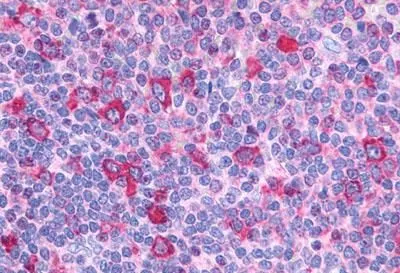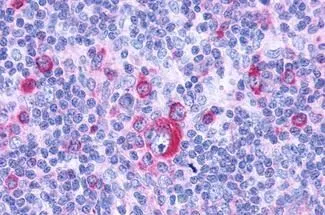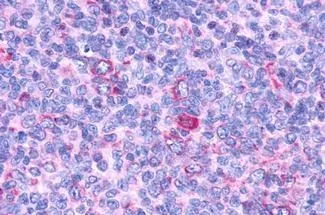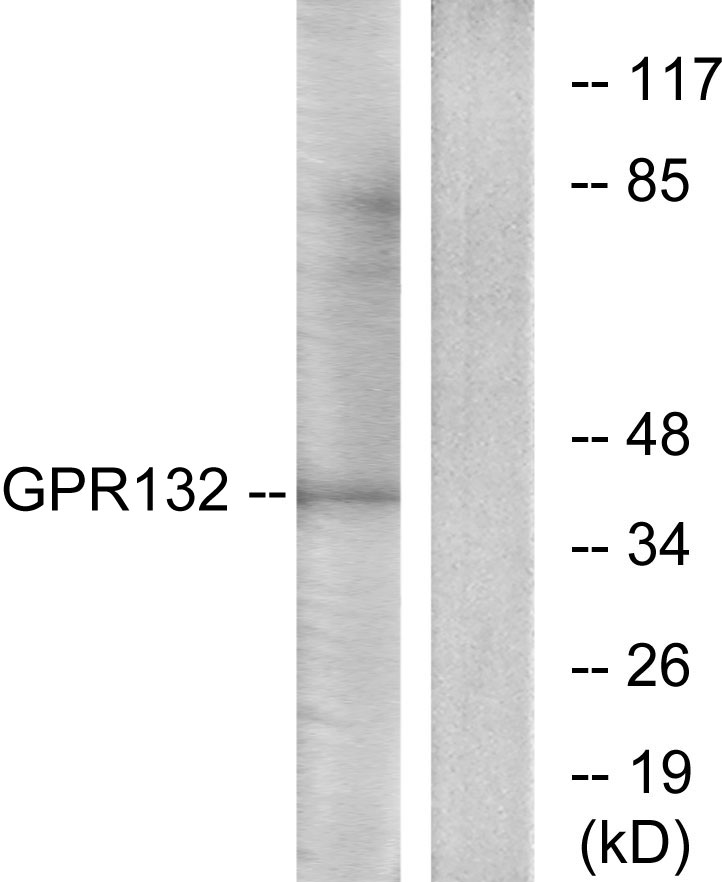
IHC-P analysis of human spleen tissue using GTX12530 GPCR G2A antibody. Antigen retrieval : Heat-induced antigen retrieval
GPR132 antibody
GTX12530
ApplicationsImmunoHistoChemistry, ImmunoHistoChemistry Paraffin
Product group Antibodies
ReactivityHuman
TargetGPR132
Overview
- SupplierGeneTex
- Product NameGPR132 antibody
- Delivery Days Customer9
- Application Supplier NoteIHC-P: 3 microg/ml. IHC-P: 3 microg/ml. *Optimal dilutions/concentrations should be determined by the researcher.Not tested in other applications.
- ApplicationsImmunoHistoChemistry, ImmunoHistoChemistry Paraffin
- CertificationResearch Use Only
- ClonalityPolyclonal
- Concentration1 mg/ml
- ConjugateUnconjugated
- Gene ID29933
- Target nameGPR132
- Target descriptionG protein-coupled receptor 132
- Target synonymsG2A, probable G-protein coupled receptor 132, G2 accumulation protein
- HostRabbit
- IsotypeIgG
- Protein IDQ9UNW8
- Protein NameProbable G-protein coupled receptor 132
- Scientific DescriptionThis gene encodes a member of the guanine nucleotide-binding protein (G protein)-coupled receptor (GPCR) superfamily. The receptors are seven-pass transmembrane proteins that respond to extracellular cues and activate intracellular signal transduction pathways. This protein was reported to be a receptor for lysophosphatidylcholine action, but PubMedID: 15653487 retracts this finding and instead suggests this protein to be an effector of lysophosphatidylcholine action. This protein may have proton-sensing activity and may be a receptor for oxidized free fatty acids. Alternative splicing results in multiple transcript variants. [provided by RefSeq, Jul 2013]
- ReactivityHuman
- Storage Instruction-20°C or -80°C,2°C to 8°C
- UNSPSC41116161







